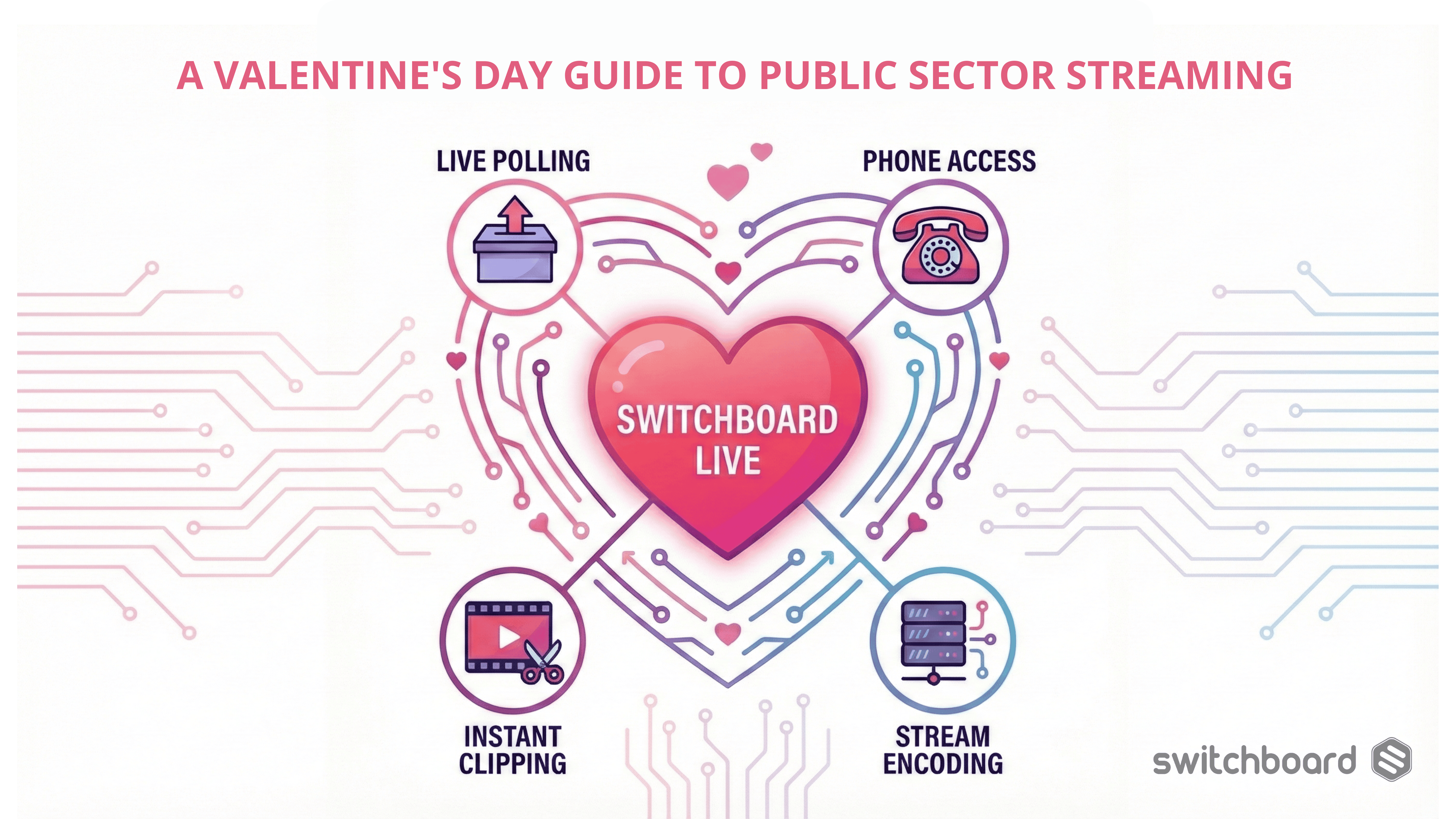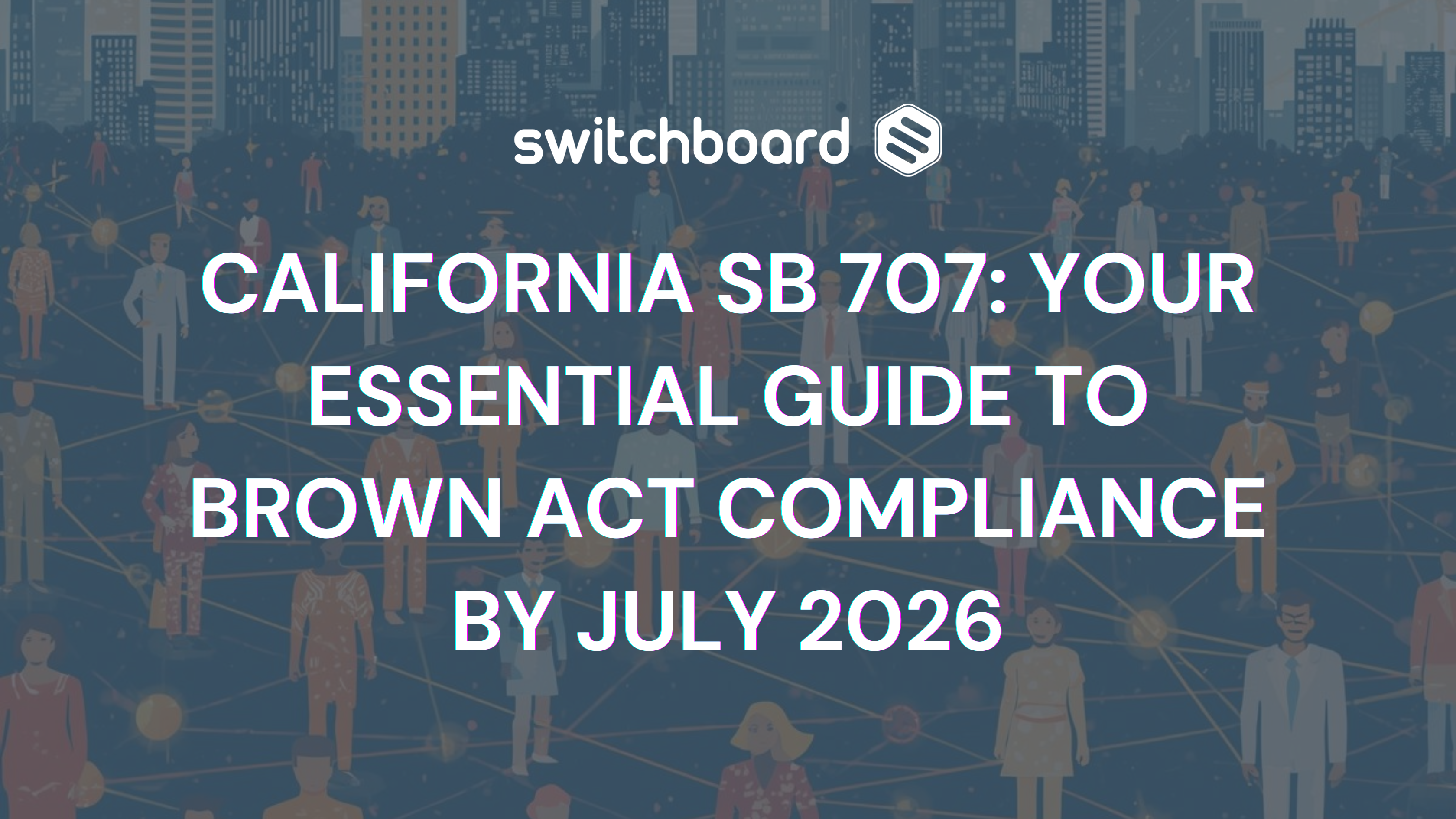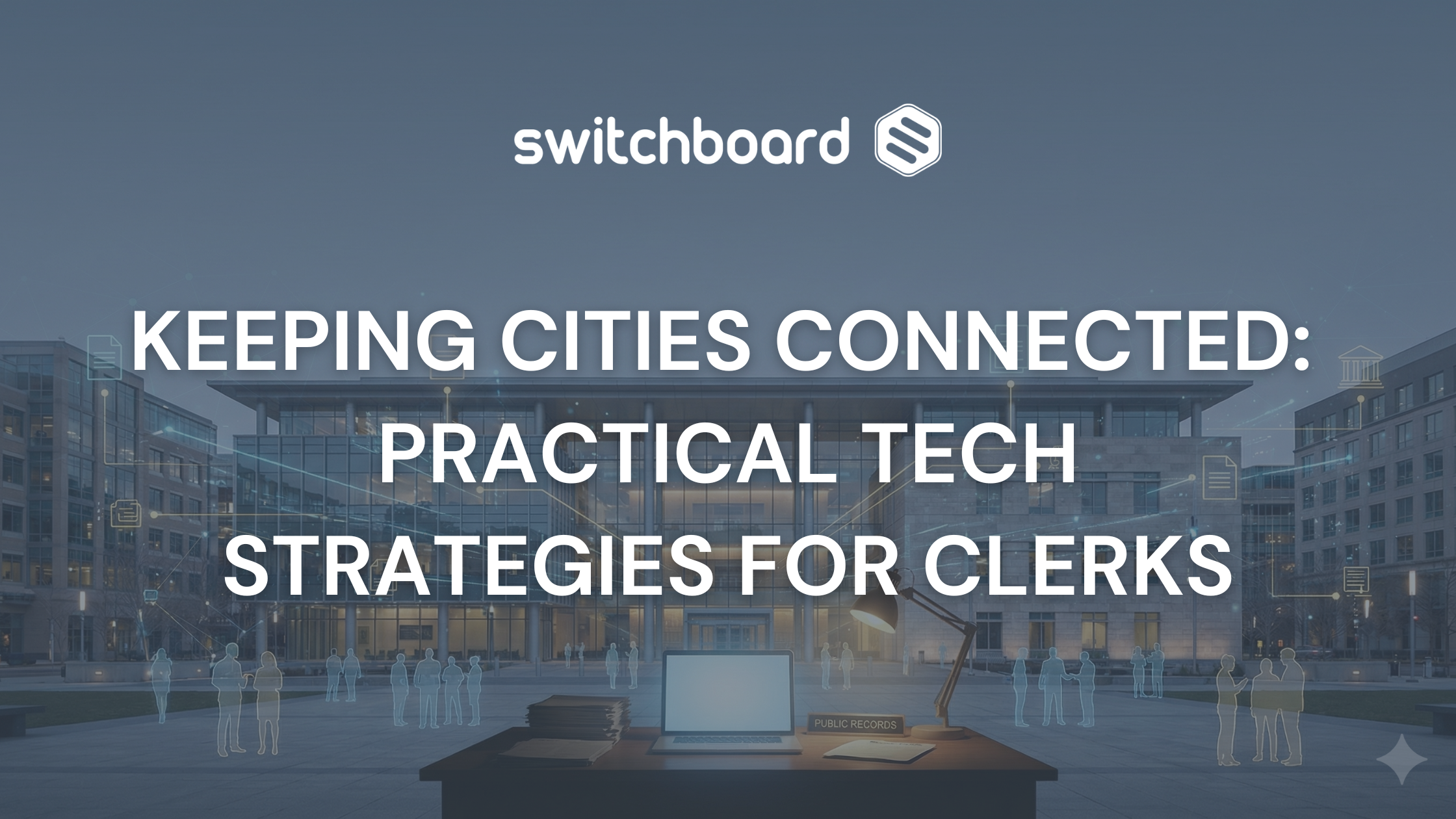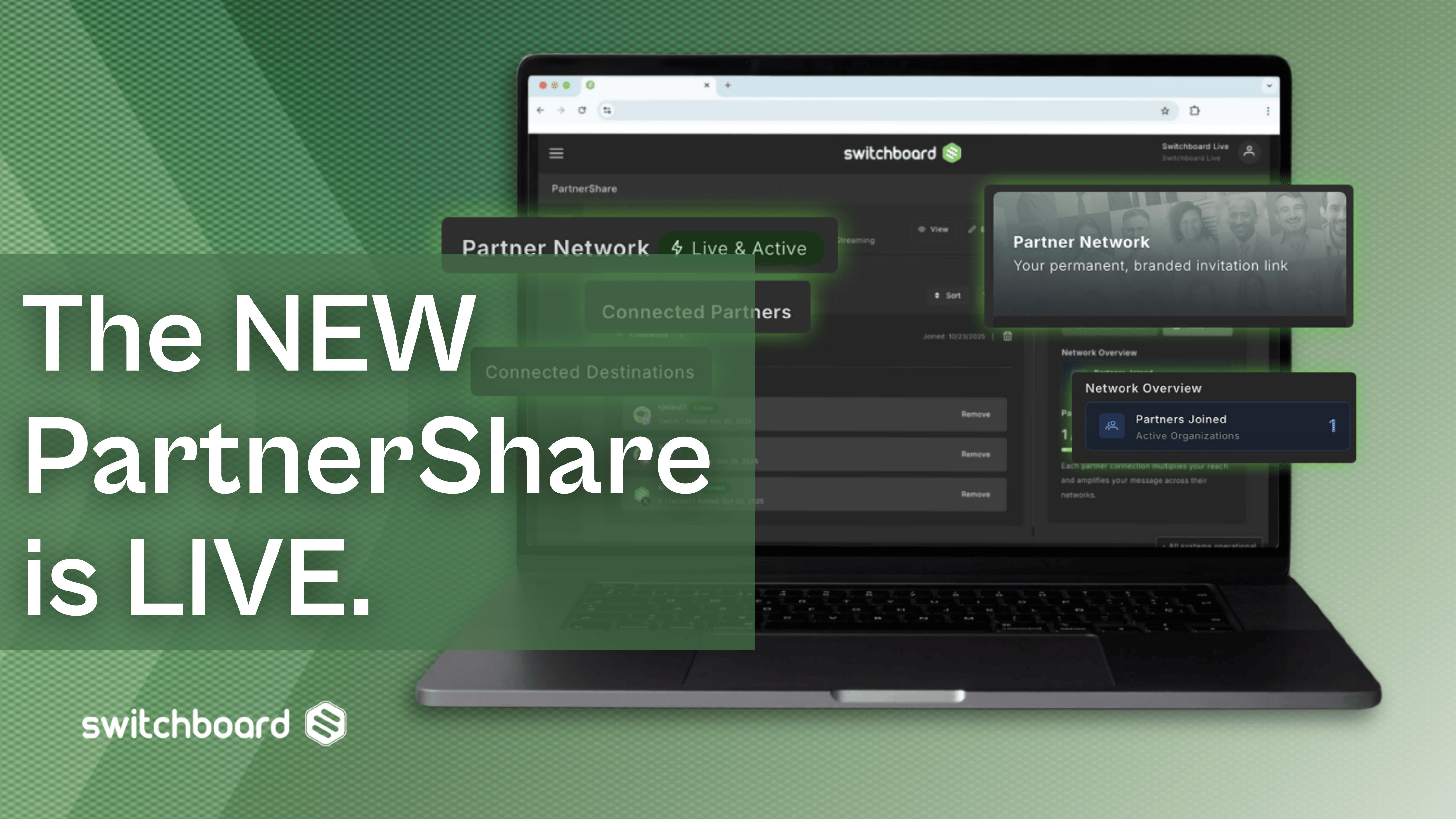Recently, you’ve likely heard quite a bit about the Federal Communications Commission (FCC) ruling to roll back the regulations known as net neutrality. There have been a lot of headlines and opinions floating around this issue – let’s look at it from the perspective of a live streaming content creator and discuss how this government action may impact the live streaming movement.
First, what is (or was) net neutrality? A good go-to definition is:
"Net neutrality is the principle that Internet service providers treat all data on the internet equally, and do not discriminate or charge differently by user, content, website, platform, application, type of attached equipment, or method of communication."
While net neutrality was in place, everyone got a fairly wide-open internet connection. It would take you to Facebook as quickly as it would take you to cousin Jimmy’s blog about cars. Now that net neutrality is gone, your internet service provider could possibly charge you more to access YouTube, or they could turn the speed it takes to get to cousin Jimmy’s blog down to a crawl. Service providers no longer have to provide the same level of service to every customer or every website for the same price.
Here are a few ways service providers could make internet usage more difficult, now that net neutrality has been repealed.

Charge For Access to Particular Websites
This means your internet service provider could start charging for internet access in the same way they do for cable TV. Essentially they could sell you one package that includes basic websites, and for more money you can get social media, or for even more money you can access Netflix, YouTube, and so on.
The concern for live streamers is that this could dramatically limit their abilities to reach and grow an audience. Right now anyone can go to essentially any website. If your primary streaming platform isn’t part of the package people pay for, then they’re removed from your potential audience and won’t have a chance to check you out even if they wanted to.
Charge For Type of Service Used Online
Internet service providers can now choose to charge you for the type of service, protocol, or technology you use. Basic web browsing could be one price, while watching any type of video would be another price. It’s possible they could charge you extra fees if you want to not only watch a live stream but also broadcast one using their internet connection.
Keep in mind that when we say “internet service provider” it doesn’t just mean companies such as Comcast or Verizon. It could also mean a hotel or convention center that offers WiFi. It’s possible that you could stay at a hotel and be charged one price for basic internet access and another fee for video streaming because you watched Netflix on your phone in your room.
For live streamers, this poses two concerns. The first, is that as a broadcaster or streamer will have to pay extra fees to go live. The second concern is that your audience will have to pay extra fees just to be able to watch you.
Charge Websites to Allow Users to Visit Them
Internet service providers can now profit from both ends thanks to the removal of net neutrality. Not only can they charge the user more on their home internet bill, but they can also charge the websites extra fees to allow people a fast connection to them.
This is troubling because it removes the equal playing field for all websites. While the big guys can pay for high-speed connections to their sites, the small local business with a basic website, that’s critical to their business, can’t afford to pay. So the little guy loses out.
To look on the bright side for live streamers, if you stream to these large platforms you’ll have no problem. They’ll have paid the extra fees and you’ll be able to deliver a quality stream on them. Of course, they’ll need to recoup those new fees they have to pay, so it wouldn’t be surprising if the platforms were to add more pre- or mid-roll ads in the middle of our videos.
Of course, the biggest loss in this scenario is felt by the people creating content for their own sites or lesser-known video platforms that can’t afford to pay what the big ones can.

Good News for Net Neutrality
While the above highlights potential options for internet service providers following the repeal of net neutrality, most of them haven’t been implemented here in the United States just yet. Many argue the free market won’t allow all these new fees and fragmentation of services.
And while the Federal Communications Commission (FCC) has ruled on this at a federal level and congressional attempts to keep it have so far failed, some states are taking action at their level.
The state of Washington was the first to pass net neutrality protections in their state. Under their new state law, service providers must detail their network management policies and post them on a “publicly available, easily accessible” website.
The Washington law also states:
"A person engaged in the provision of broadband internet access service in Washington state… may not: Block lawful content, applications, services or nonharmful devices, subject to network management; impair or degrade lawful internet traffic; engage in paid prioritization."
Vermont and Massachusetts have also adopted state level protections and many others have legislation pending. In total, 29 States have net neutrality proposals on the table. Additionally, at least six governors have used executive orders in their states to “prohibit the state from doing business with any broadband company that violates the principles of net neutrality.”
While the public strongly supports net neutrality policies, the service providers are on the other side of the fence. In their repeal of the rules, the FCC has tried to limit the state’s ability to implement their own, which means this matter may be tied up in the courts for some time to come.







.png)





